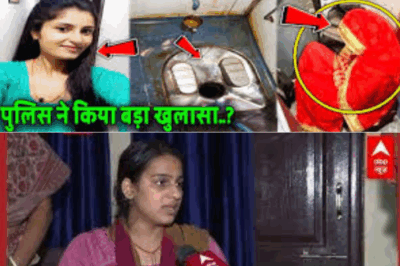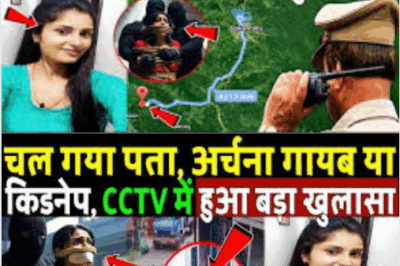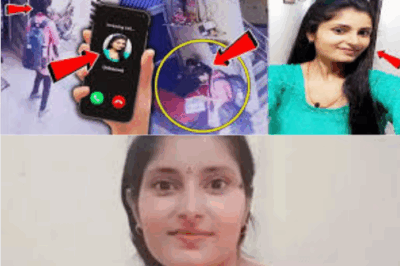Kangana Ranaut Blast On Jaya Bachchan Pushing Away A Fan In Sansad
The Indian Parliament, often referred to as the temple of democracy, witnessed an unexpected scene of tension that rapidly spilled over into the public sphere. At the center of it all was veteran actress and Samajwadi Party MP Jaya Bachchan. Known for her forthright demeanor both onscreen and in the House, Jaya Bachchan once again found herself in the spotlight—but not for a stirring parliamentary speech or legislative contribution. Instead, it was her reaction to a seemingly ordinary incident—a man trying to take a selfie with her—that has ignited a fresh storm of public criticism and celebrity confrontation.
The incident took place in the premises of Parliament, where an unidentified individual attempted to take a selfie with the senior actress-politician. Instead of brushing it off or politely declining, Jaya Bachchan visibly lost her temper. Eyewitnesses noted that she not only scolded the individual but also reportedly pushed him away. Her expression was stern, her tone sharp, and her body language intimidating enough that the man was seen repeatedly apologizing—visibly shaken and embarrassed. What should have been a moment brushed aside with a smile or ignored entirely, quickly became a flashpoint of debate about appropriate conduct for public representatives.
Jaya’s reaction was captured on camera, and the footage quickly made its way to social media platforms, where netizens reacted with surprise, disappointment, and, in many cases, outrage. While public figures undoubtedly deserve privacy and boundaries, the nature and setting of the event—inside Parliament, while on duty—added another layer to the conversation. Critics argued that as a Member of Parliament, she is not just a private individual but a public servant, expected to uphold decorum and patience even in frustrating moments.
It was not long before the controversy attracted the attention of another outspoken actress-turned-politician—Kangana Ranaut. Never one to shy away from confrontation, Kangana used the opportunity to launch a scathing verbal attack on Jaya Bachchan, not only criticizing her actions but also questioning the privileges she allegedly enjoys due to her personal affiliations.
In her Instagram story, Kangana reposted the video clip of Jaya’s angry exchange and minced no words. She wrote, “The most spoiled and problematic woman. People tolerate her tantrums and nonsense just because she is Amitabh Bachchan’s wife.” She went on to criticize the traditional Samajwadi Party cap Jaya was wearing, comparing it mockingly to a rooster’s comb. “Even she looks like a rooster herself,” Kangana added sarcastically. Her statement concluded with a blunt condemnation: “Shameful.”
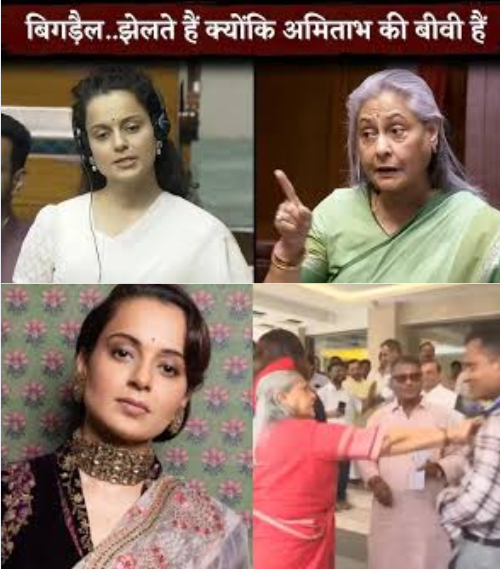
This isn’t the first time the two women have clashed—directly or indirectly. Kangana, a strong advocate of nationalism and conservative values, has frequently criticized Bollywood veterans for what she sees as hypocrisy, elitism, or political bias. Jaya Bachchan, on the other hand, has been equally vocal in Parliament defending the film industry against generalized attacks, once famously taking aim at Kangana without naming her, when the latter made sweeping accusations about drug use in Bollywood. The underlying tension between the two has long simmered under the surface, and this incident seems to have reignited it with full force.
Public response to this face-off has been predictably polarized. Some rallied behind Kangana, applauding her for calling out what they see as arrogant behavior by a senior leader. “Just because someone is a celebrity doesn’t mean they can behave this way in public. Kangana is right—there should be accountability,” wrote one user. Others defended Jaya Bachchan, pointing out that politicians too are human and entitled to moments of frustration—especially when their personal space is violated without consent. “Why must every woman be calm and smiling all the time? She was harassed, and she reacted,” argued another.
Still, the core of the issue lies deeper. Jaya Bachchan is not an ordinary citizen. As a lawmaker and public figure, she is held to a higher standard—by choice, not chance. While she may have felt overwhelmed or annoyed, many believe that resorting to physical confrontation—especially within the sacred space of Parliament—was uncalled for. Critics argue that if she felt unsafe or harassed, the appropriate action would have been to report the incident to security, not to take matters into her own hands.
This is also not the first time Jaya Bachchan’s stern and sometimes abrasive interactions have drawn headlines. Over the years, she has been seen visibly irritated with paparazzi, reporters, and even fans, often chastising them for behavior she finds inappropriate or intrusive. While some admire her no-nonsense style and old-school boundaries, others argue it’s time she adapts to the evolving expectations of public engagement—especially in a digital age where accessibility and warmth go a long way in connecting with constituents.
Kangana’s outburst, while sharp, taps into a sentiment that’s quietly been growing for some time—the idea that certain sections of Bollywood carry an air of entitlement, expecting reverence without reciprocal humility. Her comment that people put up with Jaya “only because she is Amitabh Bachchan’s wife” is pointed, invoking the very hierarchy and privilege that newer voices in cinema and politics are increasingly questioning. Whether one agrees with her tone or not, the substance of Kangana’s criticism touches on deeper tensions between generations, ideologies, and the evolving role of public figures in India.
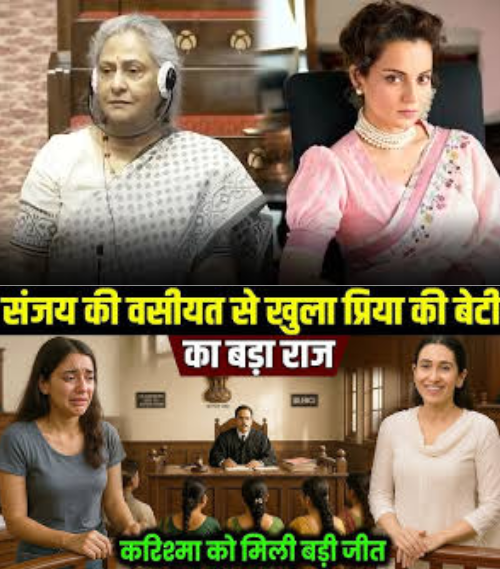
Jaya Bachchan has yet to publicly respond to the incident or to Kangana’s comments. Her silence, at least for now, may be strategic—intended to avoid further fueling the controversy. But the public conversation is far from over. Many are demanding accountability, with calls for Parliament to review the footage and assess whether any disciplinary action should be taken. Some legal experts have also weighed in, noting that physical aggression, even in minimal form, within Parliament premises is serious and should not be normalized, regardless of status or provocation.
Meanwhile, Kangana Ranaut continues to dominate social discourse—not just for her films or political ambitions but as a cultural provocateur unafraid to question authority and tradition. Love her or hate her, she reflects a new generation of leaders who prioritize directness over diplomacy and see candor as a form of service rather than rebellion.
What this incident ultimately underscores is the changing face of Indian public life. Politicians are increasingly scrutinized—not just in Parliament but in their behavior beyond it. Celebrity lawmakers walk a tightrope, expected to be both relatable and respectable. And the public is no longer content with silence or status. Every action is a statement. Every reaction, a reflection of character.
Whether Jaya Bachchan will address the backlash or allow it to pass remains to be seen. But this moment—captured on camera, amplified by critique, and immortalized in Kangana’s fiery words—has become a flashpoint in ongoing debates about privilege, accountability, and the evolving standards to which we hold our leaders. Parliament may be a temple, but even temples can be shaken when the faithful demand better behavior from their priests.
Play video :
News
Shocking! Kapil Sharma admitted to Hospital in serious condition for Salman Khn, Ginni Brokedown
Shocking! Kapil Sharma admitted to Hospital in serious condition for Salman Khn, Ginni Brokedown Comedian and actor Kapil Sharma, known…
Jaya Bachchan Angry On Amitabh And Rekha Marriage Decision After Rekha Critical Health Condition
Jaya Bachchan Angry On Amitabh And Rekha Marriage Decision After Rekha Critical Health Condition In what appears to be another…
Archana Tiwari went to the toilet in the train and did not return! Katni Girl Missing! Archana Ti…
Archana Tiwari went to the toilet in the train and did not return! Katni Girl Missing! Archana Ti… The disappearance…
Archana Tiwari’s last location found, big revelation! Katni Girl Missing! Archana Tiwari Missing
Archana Tiwari’s last location found, big revelation! Katni Girl Missing! Archana Tiwari Missing What We Know So Far Archana was…
Archana’s last call made a shocking revelation! Katni Girl Missing! Indore Archana missing
Archana’s last call made a shocking revelation! Katni Girl Missing! Indore Archana missing In a case that has stirred both…
Brother did cruelty to his sister! Sanjana Bharti case | Sanjana Murder Case
Brother did cruelty to his sister! Sanjana Bharti case | Sanjana Murder Case . . . Sanjana Bharti Case: The…
End of content
No more pages to load



